Brands like Dove, Glossier, and Peloton are leveraging #realpeople—non-traditional influencers with other jobs—in their marketing strategies, achieving significant success by fostering authenticity and emotional connections. This approach has proven effective in increasing engagement and building trust, as consumers increasingly value genuine representation in the brands they support.
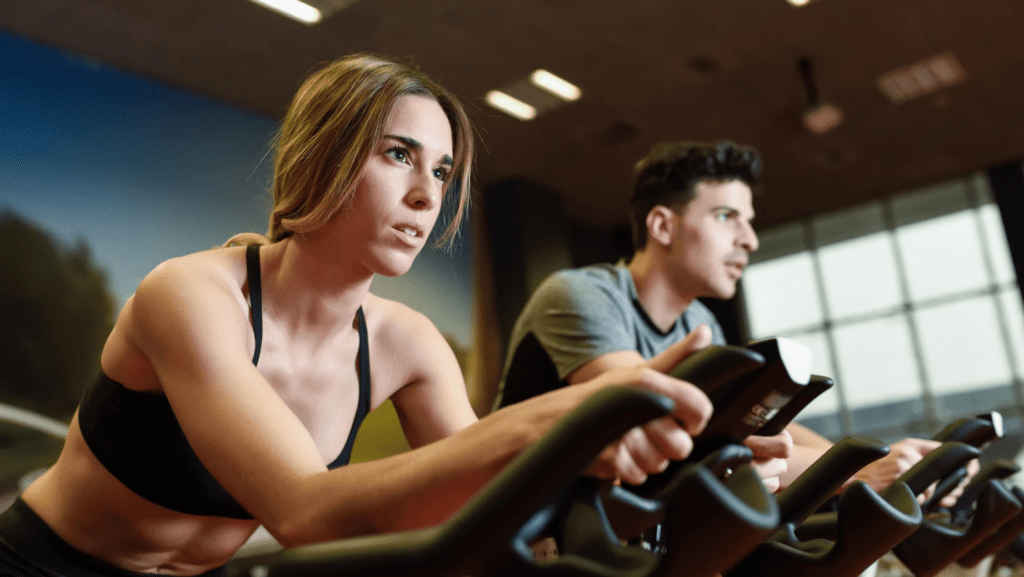
Published On: August 5, 2020
With diversity and inclusion being at the forefront of our everyday conversations #realpeople are fast becoming one of the most effective collaborators. Dove, Glossier, and Peloton are three companies pioneering #realpeople within their influencer marketing campaigns to great success.
We’re living in the age of authenticity where trust and emotional connections build the foundations of consumerism. More brands are recruiting “real people” (non-traditional influencers who hold other jobs) to advertise their products as they try to bridge the gap between them and their potential customers. While the concept of using “real people” is not new, it has gained traction over the last year and brands who are embracing this strategy are generating high levels of Engagement.
Read more: ‘Is this good?’ Your Definitive Guide to Engagement Rates
Not only is using “real people” a step towards social responsibility, as a marketing strategy, it has also proven to be very effective. The dove self-esteem project was launched in 2004, but with social media, it has maintained relevance some 16 years later. Through well-chosen collaborations with body-positive ethnical fashion bloggers like Shannon Doots (@shannydoots), Dove was able to tap into the growing desire of online audiences to connect with #realpeople, Shannon’s content has seen a 9% increase in Engagements over the last 6 months.
“Lorem ipsum dolor sit amet consectetur. Diam platea at tempor ut ut egestas venenatis. Placerat eros eget commodo ut cursus. Enim libero nibh facilisis est. At phasellus mauris ornare posuere consequat. Quam lacus curabitur consectetur amet libero tortor eu volutpat sit. Venenatis eget aenean in enim.”

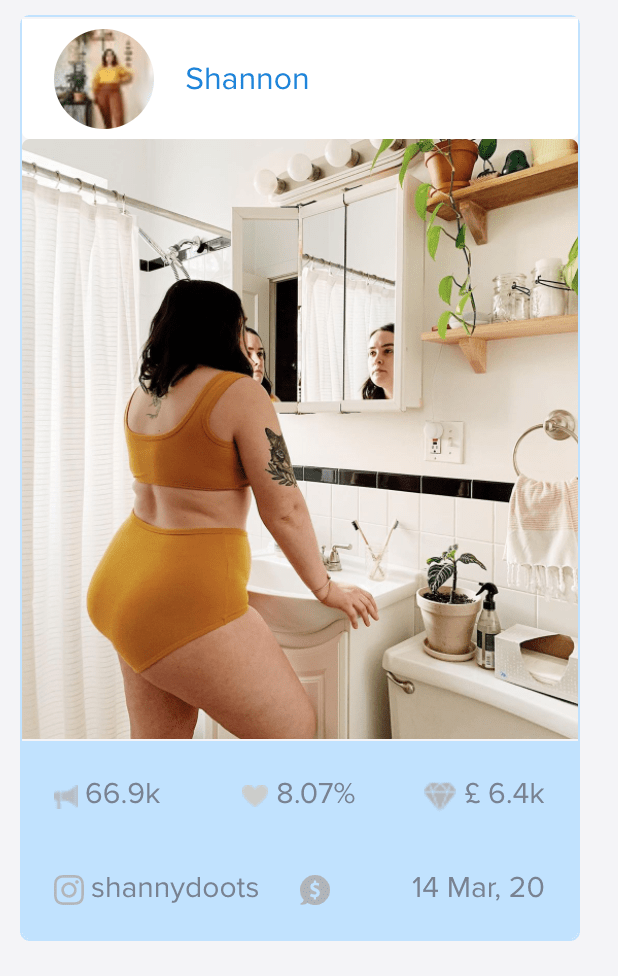
Shannon’s #doveselfesteemproject post delighted her audience achieving an 8% Engagement Rate (ER), more than double her average ER for paid posts and double the UK’s average ER for beauty content. Her post wasn’t overly stylised and her caption about self-esteem clearly resonated with her audience. These figures highlight the fact that audiences enjoy sponsored content from #realpeople that are both relatable and honest.
As a self-proclaimed “not-quite-plus-size person” Shannon has created open conversations on the topics of body image and labels. The Dove Self Esteem campaign was therefore likely to be well received by her audience as it corresponds with the conversations they were already having. This is an indicator of why it’s important to work with the right people who are engaging their audience in topics important to your brand. Using Wearisma’s Influencer Discovery Tool makes it easy to find suitable #realpeople to form strategic partnerships to increase brand exposure.
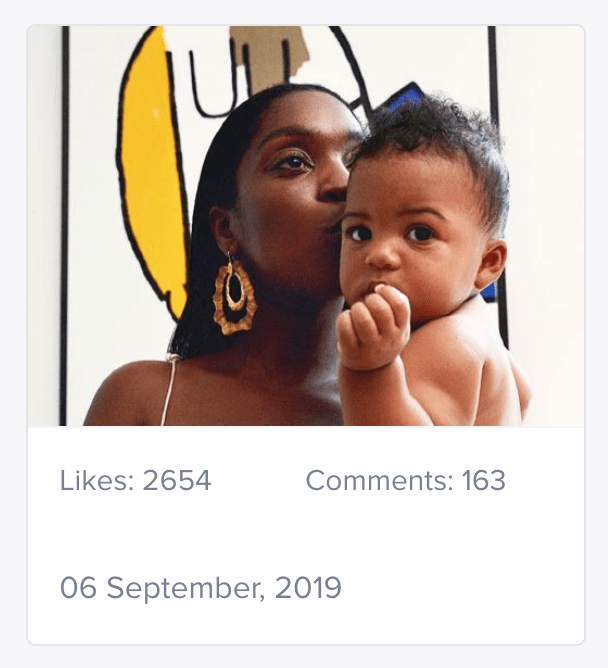
Digital-first beauty brand Glossier has embraced the inclusion of “#realpeople” within their influencer marketing strategy since its inception in 2010 – a move that’s becoming increasingly important in the beauty industry where inclusivity is becoming the standard.
Their campaign “Feeling like Glossier” looked to challenge traditional standards of beauty and put real people at the forefront. The campaign created profiles of #realpeople who use their products and sought to tell their “story”. They interviewed them on their hobbies, careers, skin types, skin problems, and the products they like the most from Glossier.
The effectiveness of this campaign in driving up brand mentions on social media is demonstrated by a 60% jump in Engagements from August to September, the month the campaign was launched.
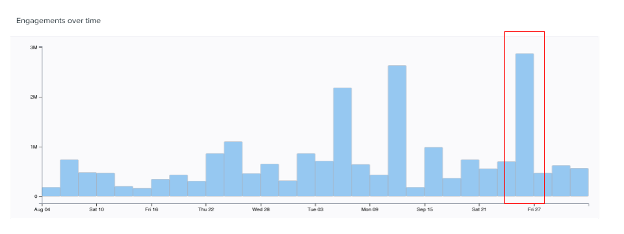
Rajni Jacques (@rajni_jacques), a fashion editor at Allure magazine, took part in the campaign. Her Glossier post had Engagement Rates 2.7x her average, demonstrating her audience’s positive response to the collaboration. Rajni’s audience was likely to respond well to Glossier’s ethos of inclusivity as she is vocal about racial injustice as well as posting personal beauty content.
Glossier’s partnerships with #realpeople are the root of the campaign’s effectiveness at increasing brand exposure. The diversity of the subjects meant that every Glossier customer was able to find someone they could relate to.
Fitness unicorn Peloton burst onto the scene in 2012 with their range of high-end exercise equipment. A pioneer in tech-based fitness, the appeal of the brand lies behind the customer’s ability to participate in exercise classes remotely through streaming video from the company’s fitness studio.
Peloton’s influencer marketing strategy is centred around building a community that includes both their fitness instructors and their customers. Peloton’s Instagram account combines content from real-time users as well as their instructors to create an inclusive and authentic feed that seamlessly integrates the Peloton user into the Peloton world. Peloton has capitalised on the community they built by putting their fitness instructors at the forefront of their marketing campaigns.
Becs Gentry (@becsgentry) and Leanne Hainsby (@leannehainsby) are two fitness instructors who have been featured in the brand’s campaigns.

Becs’(@becsgentry) Peloton content generated an average ER of 4.9%, which is 1.5x more than the UK average for health and fitness content on Instagram. Since partnering with Peloton, Becs has also seen a steady increase in overall engagement and follower count showing that she continues to build an audience surrounding her fitness instructor position at Peloton. CYCLE instructor Leanne (@leannehainsby) has also experienced similar growth in engagement and follower numbers as her involvement with Peloton continues to grow stronger. As one of Peloton’s top influencers, her ER of 6.4% was among the highest for Peloton’s Instagram content in the last three months. This growth was reflected in Peloton’s social media brand mentions which have seen an overall increase in Engagements over the last six months.
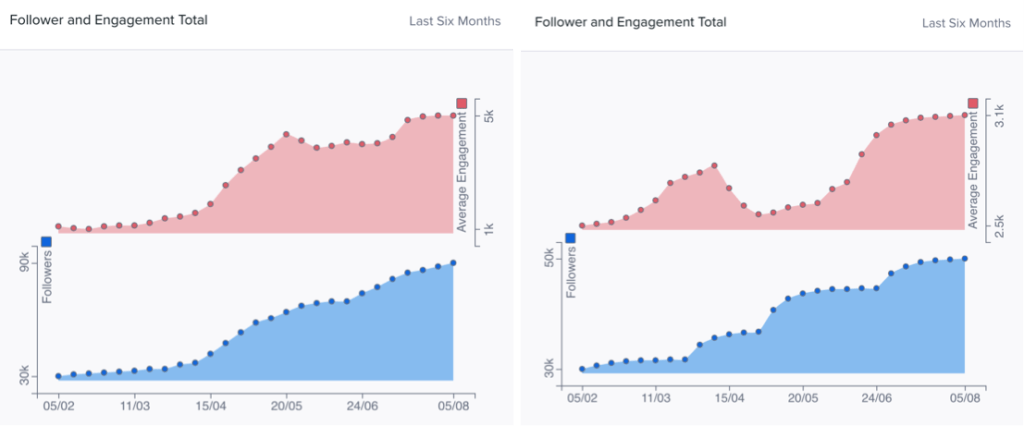
The appeal of partnering with #realpeople like fitness instructors like Becs and Leanne is that they are experts in their fields while remaining accessible to those looking to join the Peloton lifestyle. Through their pages, the Peloton instructors can showcase their personal lives and seamlessly integrate their work at Peloton with their other content.
The effectiveness of #realpeople marketing is telling of our human need for connection. Being able to see people like ourselves represented in the brands we buy from means we feel included and part of the family. Evoking emotion and fostering open dialogue between brand and customer are the new keys to success.
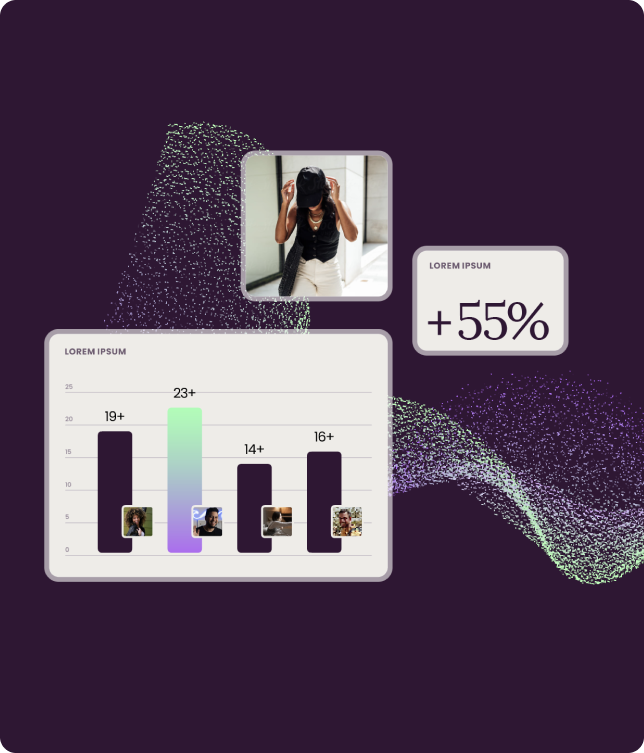
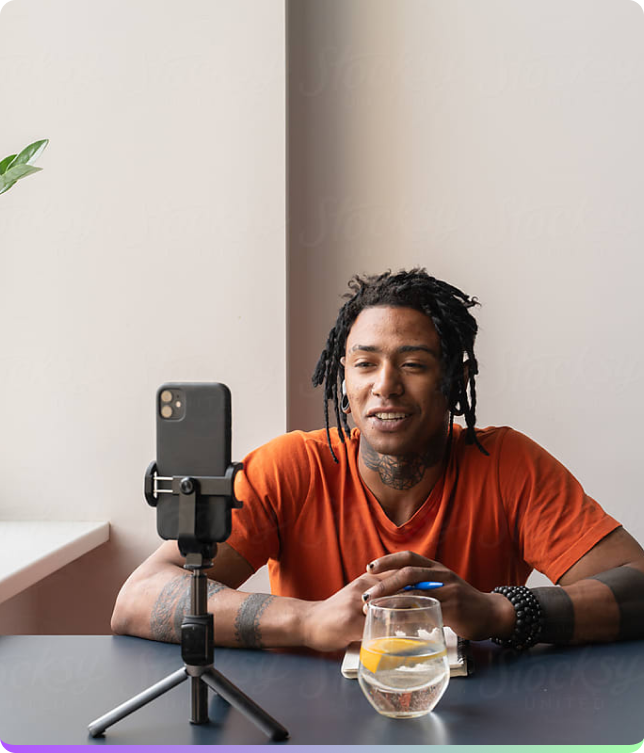
Keep informed with the latest trends, reports, and case studies from the world of influencer marketing.
In 2025, influencer gifting has evolved from glossy PR packages to something much more meaningful: intentional, relationship-driven storytelling. Whether you’re a brand in beauty, fashion, tech, or wellness, the goal is the same – build real connections that drive advocacy, not just awareness.
That message resonated strongly during our recent Influencer Gifting & Seeding webinar, where we were joined by industry leaders Grace Fung, Influencer Marketing & Communications Lead at Coty, and Abigail, Talent Manager from Primark. They shared strategic insights into how their teams are evolving traditional gifting approaches to better align with shifting consumer expectations and brand objectives.
WeArisma’s Personal Care 2025 State of Influence Interactive Report – The Definitive Guide to Winning in Bath and Body, Hair Care, Skincare, and Wellness Through Influencer Strategy
The personal care market is booming – but only the most emotionally resonant brands are cutting through the noise. Authenticity, expert credibility, and self-care storytelling are driving the next wave of influence.
Our Personal Care 2025 State of Influence Report reveals how Dove, Nivea, Aquaphor, and Bevel are shaping the future of the category – and how your brand can do the same.
Stay up to date with the latest industry trends and topics
Discover how WeArisma can help you harness the power in influence, grow your brand’s presence, and achieve measurable success.
WeArisma combines the power of AI, influencer marketing and social listening to deliver smarter, scalable strategies with real impact.